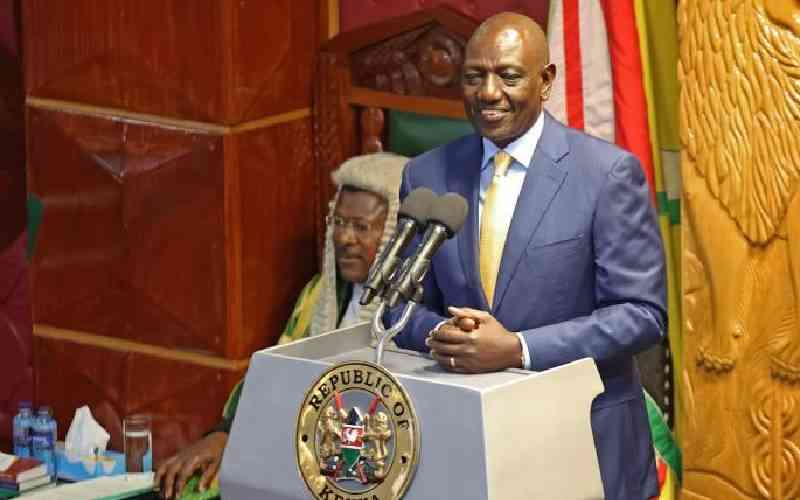×
The Standard e-Paper
Kenya’s Boldest Voice

President William Ruto on Thursday outlined the 'tough and painful' choices his administration has taken to rescue the country from debt trap and economic ruin.
In his second State of the Nation address, the head of state hailed measures by his government to mitigate the rising cost of living, even as he urged Kenyans to pull together in a speech that highlighted his achievements and pledges for the future.